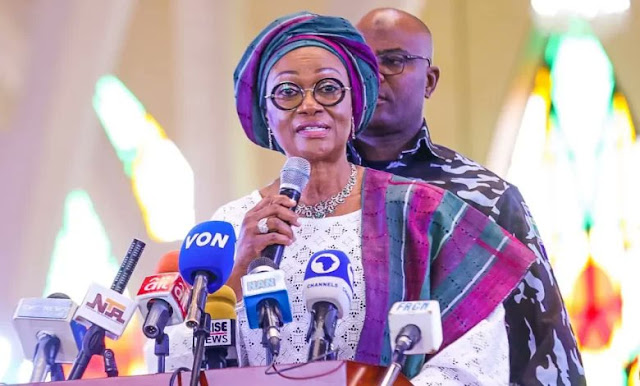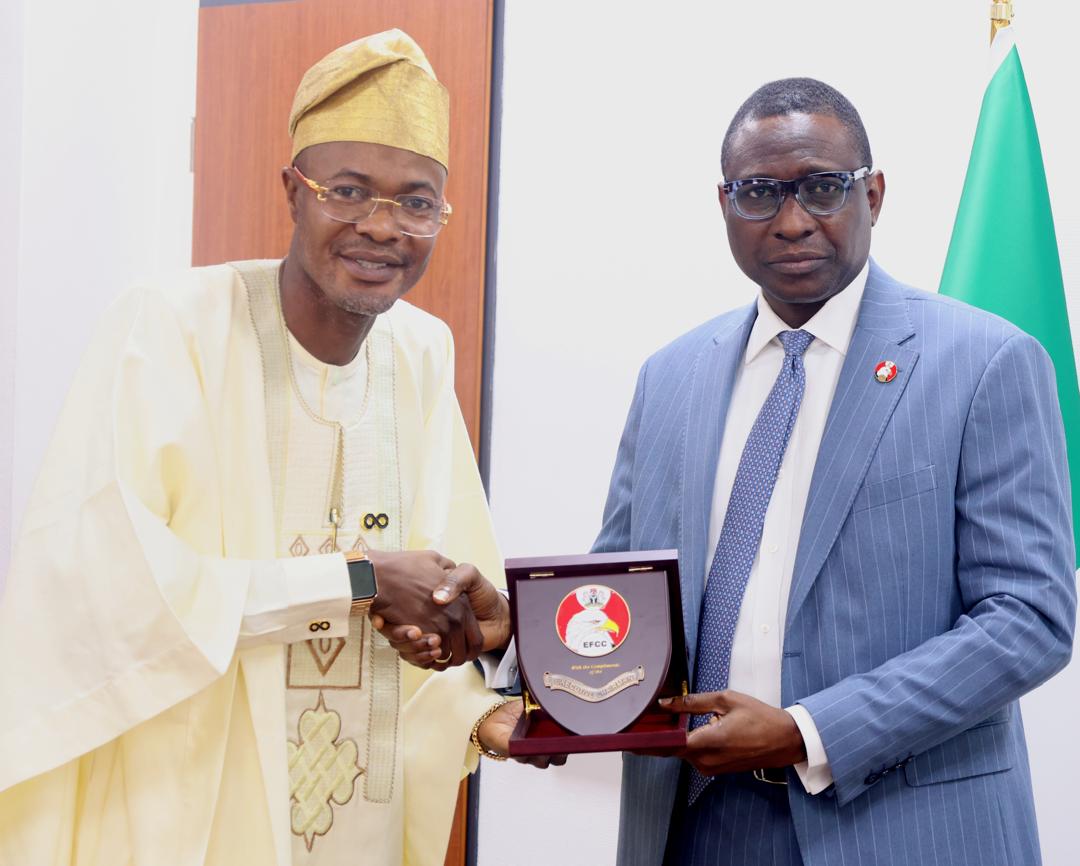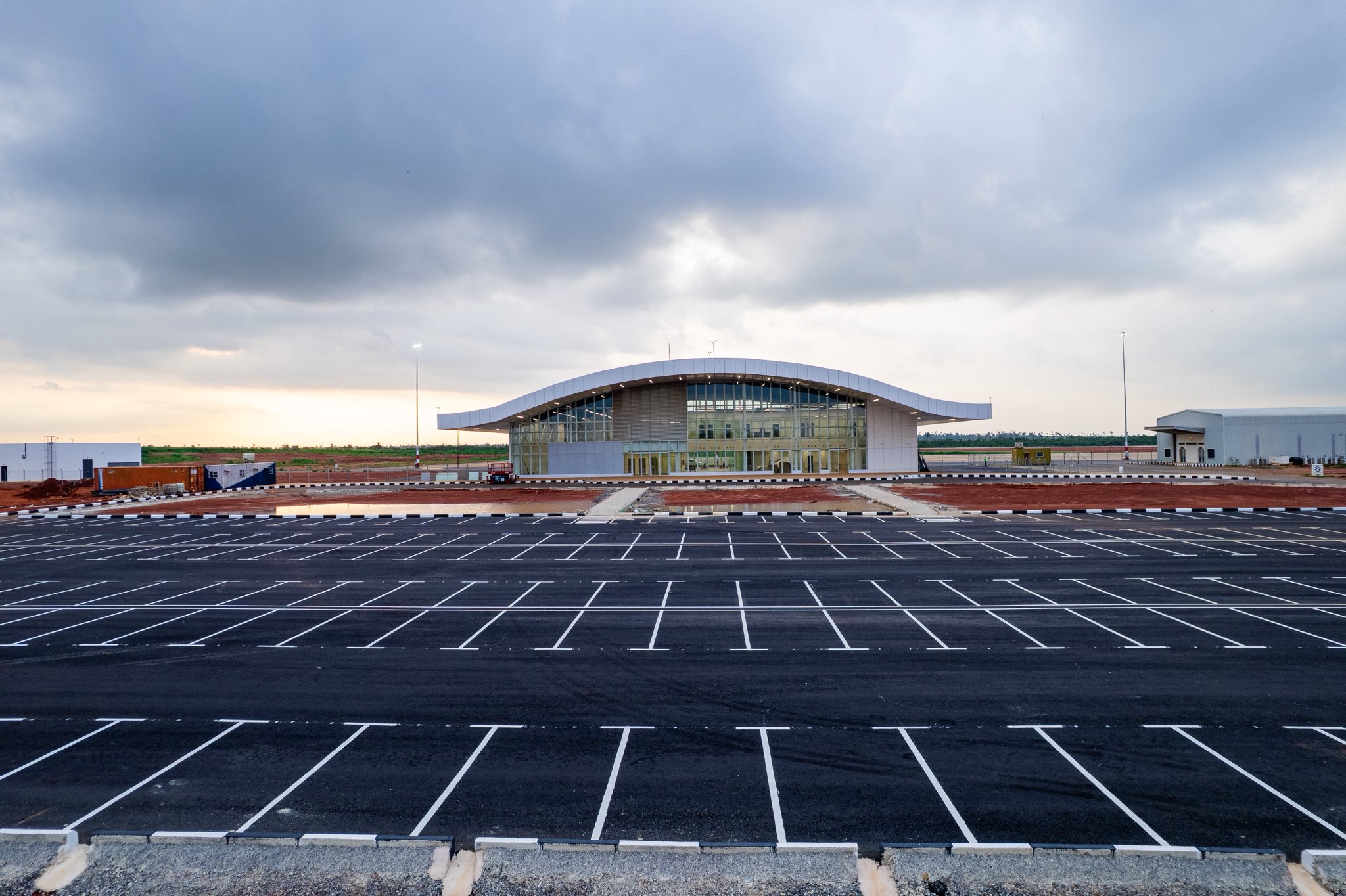On September 4, 2025, a remarkable story emerged from Bauchi State, Nigeria, capturing the attention of the nation and sparking debates about loyalty, philanthropy, and governance. Khamis Musa, a staunch supporter of President Bola Ahmed Tinubu, publicly pledged his entire September salary to support a special project initiated by Nigeria’s First Lady, Senator Oluremi Tinubu, to mark her 65th birthday on September 21, 2025. The project, focused on completing the long-abandoned National Library of Nigeria, reflects the First Lady’s vision to advance education and preserve the nation’s intellectual heritage. Musa’s gesture, while praised by some as an act of dedication, has also ignited mixed reactions, with critics questioning its timing amid Nigeria’s economic challenges. This article explores the details of Musa’s pledge, the significance of Oluremi Tinubu’s initiative, and the broader implications for Nigeria’s political and educational landscape.
The Pledge: A Symbol of Loyalty
Khamis Musa, a resident of Bauchi State, announced his intention to donate his September salary to the “Oluremi at 65 Education Fund,” a dedicated account established to fund the completion of the National Library project. In a statement issued on Thursday, September 1, 2025, Musa expressed his deep admiration for Senator Oluremi Tinubu’s commitment to education and public welfare, describing her initiative as a “transformative legacy.” “I am inspired by the First Lady’s vision to empower future generations through knowledge,” Musa said. “Donating my salary is my way of supporting her noble cause.”
Musa’s pledge aligns with the First Lady’s appeal to well-wishers to forgo traditional birthday gifts, such as cards, cakes, flowers, or newspaper advertisements, and instead contribute funds to the National Library project. In a video message, Senator Tinubu announced, “By the special grace of God, I will be turning 65 years old on September 21, 2025, and this happens to be a Sunday. This is why I have decided to dedicate the day to God for all His blessings in my life and have a quiet birthday. I wish to appeal to those who would like to send a birthday card, cakes, flowers, greetings in the newspapers, or gifts to please send the funds to the designated account for a special project close to my heart.” The account, coordinated by the Federal Ministry of Education under Zenith Bank Plc (account number 1310314977), is intended to ensure transparency in the utilization of funds.
Musa’s decision to contribute his entire monthly salary is a striking gesture, particularly in a country grappling with economic hardship. While the exact amount of his salary was not disclosed, the act underscores the depth of his loyalty to President Tinubu and his wife, as well as his belief in the importance of the National Library project. However, the pledge has sparked varied reactions, with some praising Musa’s generosity and others questioning the prioritization of such contributions in a time of widespread poverty and insecurity.
Oluremi Tinubu’s Vision: The National Library Project
The National Library of Nigeria, envisioned as a cornerstone of the nation’s intellectual heritage, has been a long-stalled project plagued by funding shortages and bureaucratic delays. Located in Abuja, the library was intended to serve as a repository of Nigeria’s history, knowledge, and cultural aspirations. However, as reported by The Nigeria Education News in February 2025, the library’s Area 2, Garki branch is in a state of neglect, with outdated bookshelves, inadequate infrastructure, and fewer than ten computers in its so-called “research room.” This dire situation has rendered the institution a shadow of its intended purpose, undermining Nigeria’s aspirations for digital literacy and global competitiveness.
Senator Oluremi Tinubu’s decision to dedicate her 65th birthday to reviving this project reflects her longstanding commitment to education and women’s empowerment. A former lawmaker and advocate for social causes, the First Lady has emphasized the transformative potential of a fully functional National Library. “The National Library is more than a building; it is a repository of our history, knowledge, and aspirations as a nation,” she said at a press briefing in Abuja. By redirecting birthday gestures into donations, she aims to galvanize public support for a cause she believes is critical to Nigeria’s future.
The initiative, coordinated under the “Oluremi at 65 Education Fund,” is managed by the Federal Ministry of Education to ensure accountability. The First Lady’s spokesperson, Bukola Kukoyi, has cautioned against fake accounts, urging the public to use only the designated Zenith Bank account. In March 2025, the Minister of Education, Tunji Alausa, announced plans to complete the first phase of the library by June 2025, with the Tertiary Education Trust Fund (TETFUND) allocating ₦15 billion as an initial tranche. However, progress has been slow, and the First Lady’s appeal seeks to bridge the funding gap through public contributions.
The Political Context: Tinubu’s Leadership and Public Sentiment
Khamis Musa’s pledge comes at a time when President Bola Ahmed Tinubu’s administration is navigating significant challenges. Since assuming office on May 29, 2023, Tinubu has implemented bold reforms, including the removal of fuel subsidies and the liberalization of the foreign exchange market. These policies, aimed at reducing government expenditure and stabilizing the economy, have led to soaring inflation, a depreciating naira, and increased living costs, sparking widespread discontent. According to a 2025 report, over 30 million Nigerians have been pushed into poverty in recent years, with inflation rates exceeding 30%, making basic necessities unaffordable for many.
Insecurity remains another pressing issue, with banditry, kidnapping, and terrorism plaguing regions like the North-East, North-West, and South-East. In Bauchi State, where Musa resides, the government has faced criticism for its handling of security challenges, with Governor Bala Mohammed publicly stating that Tinubu’s policies are “not working” and that Nigerians are suffering. This backdrop makes Musa’s pledge a bold and polarizing act, as it aligns him with a presidency facing scrutiny for its economic and security policies.
Public reactions to Musa’s gesture, as seen on platforms like X, reflect Nigeria’s divided sentiment. Some users praised his dedication, with comments like, “This is true loyalty to a leader with a vision for Nigeria.” Others, however, criticized the move as tone-deaf, given the economic hardships facing ordinary Nigerians. “Inside same country wey most people dey cry and die of hunger? Insecurity? Economy hardship? O ga oo,” one user posted, highlighting the disconnect between Musa’s pledge and the realities of many citizens. The African Democratic Congress (ADC) also weighed in, arguing that the National Library should be funded by the federal government, not private donations, stating, “A nation’s intellectual heritage cannot depend on occasional benevolence but requires deliberate and consistent investment.”
Educational Challenges in Nigeria
The National Library project underscores Nigeria’s broader educational challenges. With over 200 million people, Nigeria has one of the highest rates of out-of-school children globally, with a 2024 UNICEF report estimating 10.2 million primary school-age children and 8.1 million junior secondary school-age children out of school. Additionally, 74% of children aged 7–14 lack basic reading and math skills, reflecting systemic issues such as inadequate infrastructure, unqualified teachers, and insufficient funding.
The National Library, intended as a hub for research and learning, has been hamstrung by neglect. The shift of its funding to TETFUND in recent years, removing direct budgetary allocations for 2024 and 2025, has further delayed progress. Oluremi Tinubu’s initiative seeks to address this gap, but critics argue that relying on private donations, like Musa’s, is unsustainable. The ADC’s statement emphasized that the government should prioritize budgetary allocations, with the First Lady using her influence to secure presidential commitment rather than soliciting public funds.
In Bauchi State, educational challenges mirror national trends. Despite efforts to improve access, many schools lack basic facilities, and the proliferation of substandard private institutions has compromised quality. Musa’s pledge, while symbolic, highlights the tension between individual acts of philanthropy and the need for systemic reform. His contribution, though significant on a personal level, is a drop in the bucket compared to the resources required to complete the National Library and address Nigeria’s educational deficits.
The Significance of Musa’s Gesture
Khamis Musa’s decision to donate his salary is a powerful expression of loyalty to President Tinubu and his wife, reflecting the deep political divisions in Nigeria. As a supporter in Bauchi, a state governed by PDP’s Bala Mohammed, Musa’s act stands out in a region where Tinubu’s policies have faced criticism. His gesture aligns with the Tinubu administration’s “Renewed Hope Agenda,” which emphasizes education, healthcare, and economic empowerment, but it also raises questions about the role of individual contributions in addressing national challenges.
For supporters, Musa’s pledge is a commendable act of patriotism, demonstrating faith in the First Lady’s vision. The National Library, if completed, could serve as a beacon of knowledge, providing resources for students, researchers, and policymakers. Musa’s statement that the project is a “transformative legacy” echoes the First Lady’s belief that education is a cornerstone of nation-building.
Critics, however, view the pledge as a misplaced priority. With millions struggling to afford basic necessities, the idea of donating a month’s salary to a birthday project, even one tied to education, has been met with skepticism. The ADC’s critique, echoed by some X users, argues that the government should fully fund the National Library, as it is a national priority, not a personal charity project. The contrast between Musa’s gesture and the economic realities faced by many Nigerians underscores the challenge of balancing symbolic acts with systemic solutions.
Legal and Ethical Considerations
The “Oluremi at 65 Education Fund” raises legal and ethical questions about crowdfunding for public projects. While the First Lady’s office has promised transparency, with the Federal Ministry of Education overseeing the account, public trust in such initiatives is fragile. Nigeria’s history of mismanaged public funds has fueled skepticism, with some questioning whether donations will be used effectively. The caution against fake accounts, issued by Bukola Kukoyi, highlights the risk of fraud, a common issue in high-profile fundraising campaigns.
Ethically, the initiative walks a fine line. While Oluremi Tinubu’s call for donations is framed as a selfless act, critics argue that it shifts responsibility from the government to citizens. The National Library, as a public institution, should ideally be funded through budgetary allocations, not reliant on individual generosity. Musa’s pledge, while admirable, raises questions about whether such acts inadvertently legitimize this shift, placing pressure on ordinary Nigerians to fund public goods.
Broader Implications for Nigeria
The story of Khamis Musa’s pledge and Oluremi Tinubu’s National Library project has far-reaching implications for Nigeria’s political, social, and educational landscape. Politically, it highlights the polarized nature of public sentiment toward the Tinubu administration. Supporters see Musa’s gesture as a sign of loyalty to a government striving to address Nigeria’s challenges, while critics view it as a distraction from systemic failures. The contrast between Bauchi’s PDP-led government and Musa’s support for Tinubu underscores the regional and political divides that shape Nigeria’s governance.
Socially, the initiative reflects the power of public figures to inspire action. Oluremi Tinubu’s appeal has mobilized individuals like Musa, demonstrating the influence of the First Lady’s office in galvanizing support for national causes. However, it also highlights the economic disparities that make such gestures controversial, as many Nigerians struggle to meet basic needs.
Educationally, the project draws attention to the urgent need for investment in Nigeria’s learning infrastructure. The National Library, if completed, could transform access to knowledge, supporting students and researchers in a country aspiring to global competitiveness. However, the reliance on private donations underscores the government’s funding challenges, raising questions about the sustainability of such initiatives.
Public Reactions and Future Prospects
Public reactions, as seen on X, range from admiration to outrage. Supporters of Musa’s pledge praise his selflessness, with comments like, “This is how we build a better Nigeria, one sacrifice at a time.” Critics, however, question the optics, with one user stating, “People are hungry, and we’re funding birthday projects? This is not the priority.” The debate reflects broader tensions about governance, accountability, and the role of philanthropy in addressing public needs.
Looking ahead, the success of the National Library project will depend on several factors: the government’s commitment to transparency, the effectiveness of fundraising efforts, and the ability to deliver tangible results. If the project revitalizes the library and enhances educational access, it could bolster the Tinubu administration’s credibility. However, failure to deliver could reinforce perceptions of mismanagement and deepen public disillusionment.
Conclusion
Khamis Musa’s pledge to donate his September salary to Oluremi Tinubu’s National Library project is a striking act of loyalty that has sparked both admiration and controversy. Set against the backdrop of Nigeria’s economic and security challenges, the gesture highlights the complexities of governance and public sentiment in a divided nation. The First Lady’s initiative, aimed at completing a critical educational institution, reflects a vision for progress but also raises questions about the role of private donations in funding public goods.
As Nigeria navigates its challenges, the story of Musa’s pledge serves as a microcosm of broader debates about leadership, accountability, and national priorities. By addressing systemic issues, ensuring transparency, and engaging the public, the Tinubu administration can leverage this initiative to build trust and advance education. For now, Musa’s gesture stands as a testament to individual commitment, but its ultimate impact will depend on the government’s ability to deliver on its promises.









